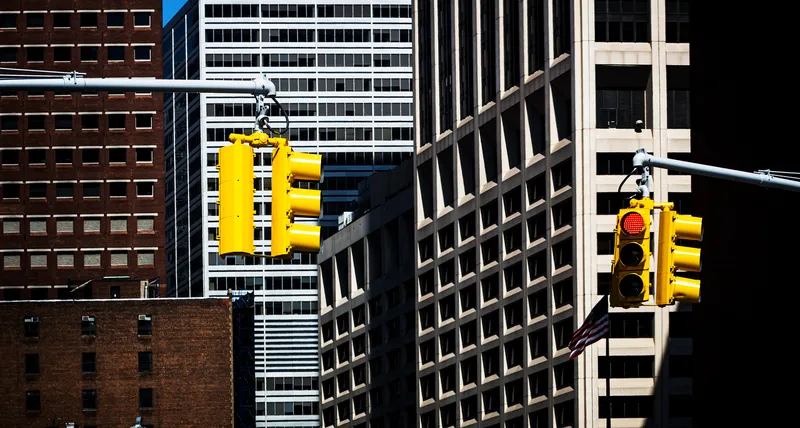U.S. president Donald Trump has announced that he wants Congress to approve $200bn (£144bn) bill, which he said will stimulate another $1.3tn (£9bn) in improvements as part of his plan to fix the country’s infrastructure. One intention of the proposal is to eliminate regulatory barriers and offer more flexibility to transportation projects that are currently required to seek Federal review and approval.
$100bn (£72bn) of the proposed bill will create an Incentives Program to spur additional dedicated funds from States, localities and the private sector. It will promote accountability and make Federal funding conditional on projects meeting agreed upon milestones.
A Transformative Projects Program will receive $20bn (£14bn) and the same amount will also be invested into expanding infrastructure financing programs; $14bn (£10bn) of which will develop existing credit programs such as TIFIA, WIFIA, RRIF and rural utility lending. $6bn (£4.3bn) will be used to expand Private Activity Bonds, while $10bn (£7.2bn) will be dedicated to a Federal Capital Revolving Fund.
Rural America’s infrastructure is intended to be modernized through a $50bn (£36bn) program, with most dollars to be allocated to State governors; allowing them the flexibility to prioritise their communities’ needs.
The president also highlighted an intention to return decision making authority to State and local governments with funds to be allocated to infrastructure projects they prioritize.
Additionally, Trump plans to shorten and simplify the approval process for infrastructure projects and establish a “one agency, one decision” structure for environmental reviews. It also aims to shorten the environmental review process to two years while protecting the environment.
Bill Shuster, chairman at the House Transportation and Infrastructure said: “An infrastructure bill needs to be bipartisan, fiscally responsible, and make real long-term investments in our Nation. By addressing the long-term sustainability of the Highway Trust Fund, exploring new ways to invest, and ensuring the fast delivery of projects, we can rebuild and improve our highways, water infrastructure, public buildings, rail transportation, and other infrastructure.
“The President is a builder who understands the importance of infrastructure to jobs and our economy, and I welcome the release of his Administration’s principles today as Congress prepares to develop an infrastructure bill.
“There is widespread desire to work together on this effort. Passage of an infrastructure bill will require presidential leadership and bipartisan congressional cooperation. I look forward to the constructive debate ahead of us on this critical issue. Our constituents elected us to address the Nation’s problems, and we now have a golden opportunity to work together to do that.”
Trump unveils U.S. infrastructure investment
U.S. president Donald Trump has announced that he wants Congress to approve $200bn (£144bn) bill, which he said will stimulate another $1.3tn (£9bn) in improvements as part of his plan to fix the country’s infrastructure. One intention of the proposal is to eliminate regulatory barriers and offer more flexibility to transportation projects that are currently required to seek Federal review and approval. $100bn (£72bn) of the proposed bill will create an Incentives Program to spur additional dedicated fund
February 13, 2018
Read time: 3 mins







